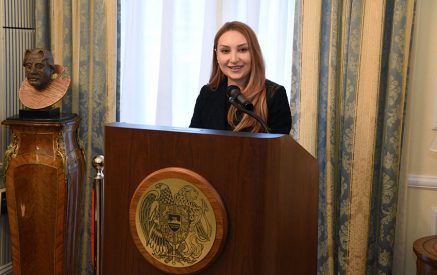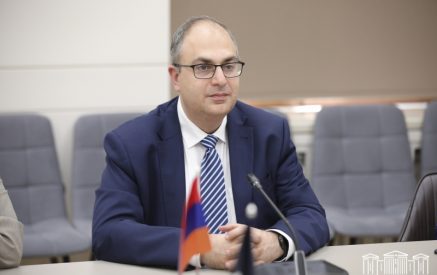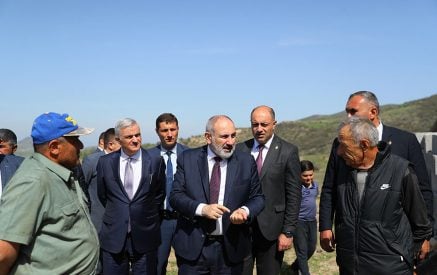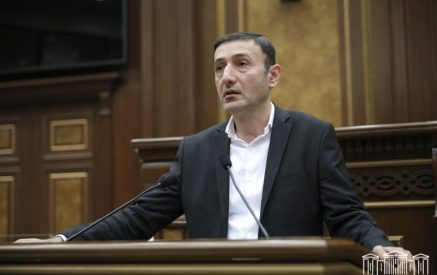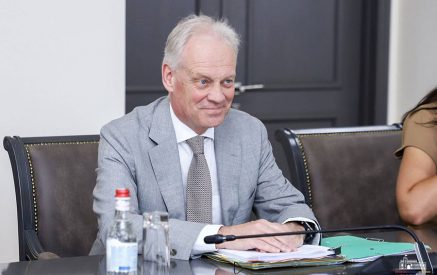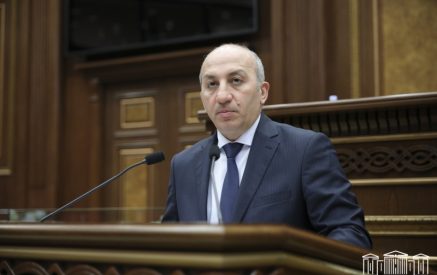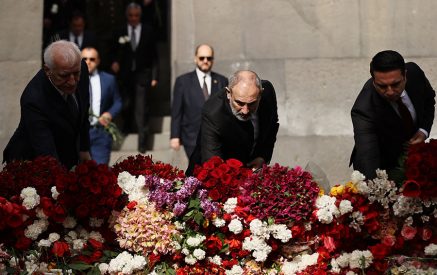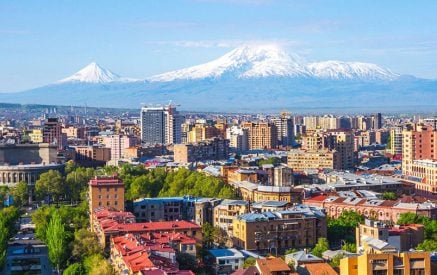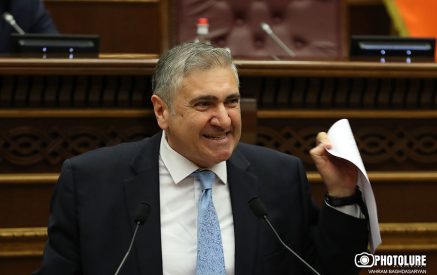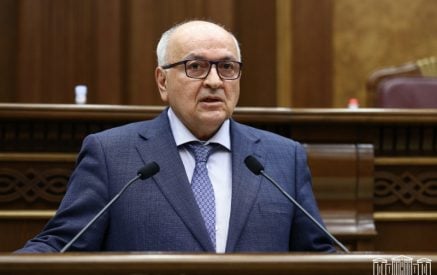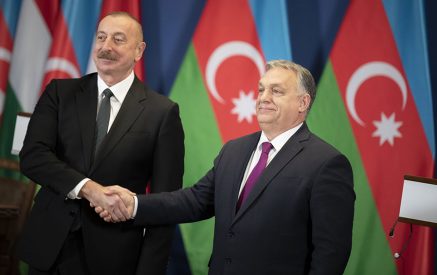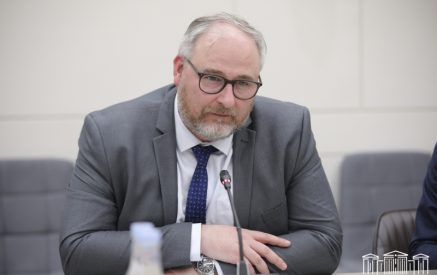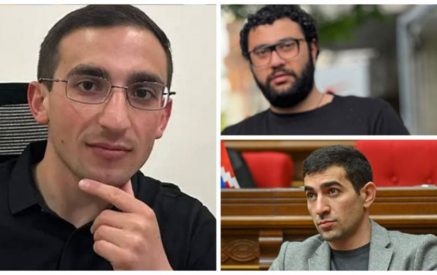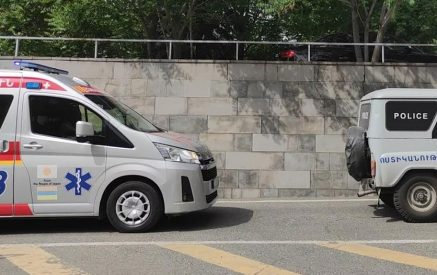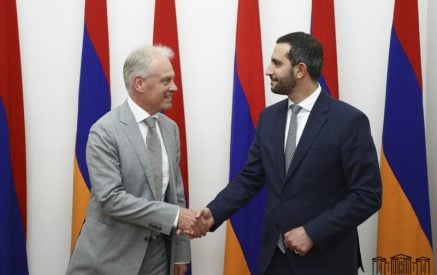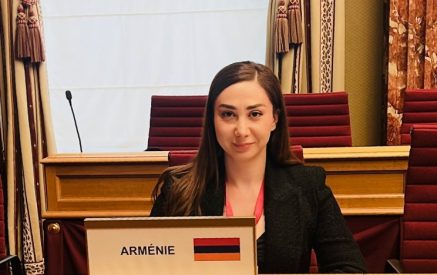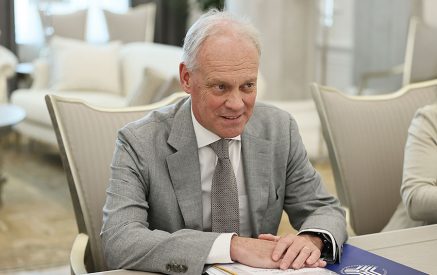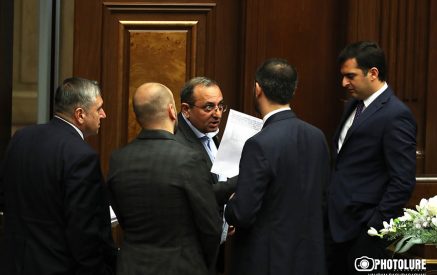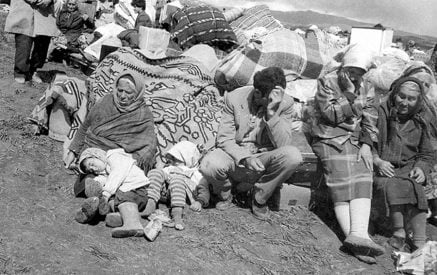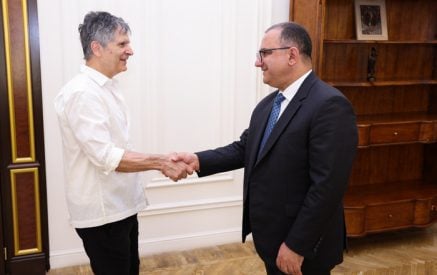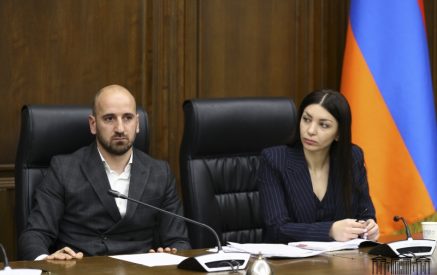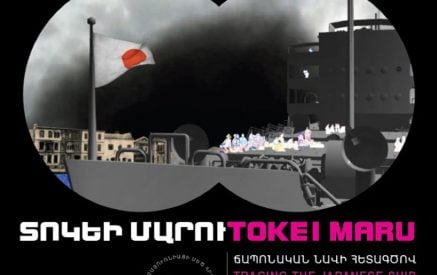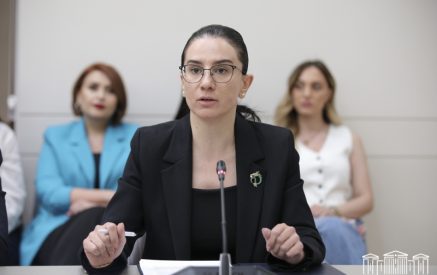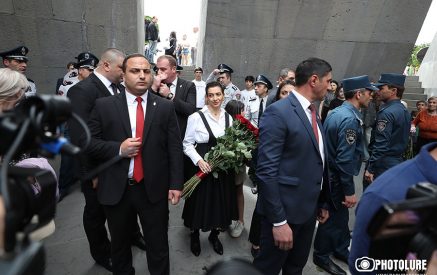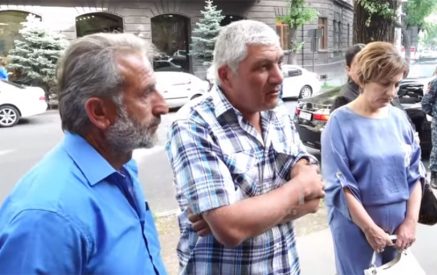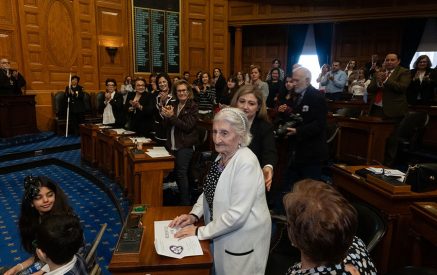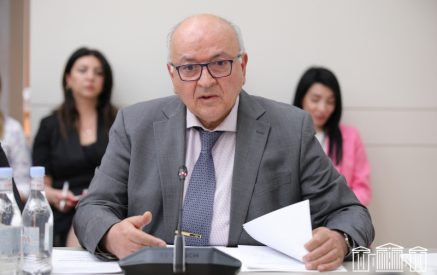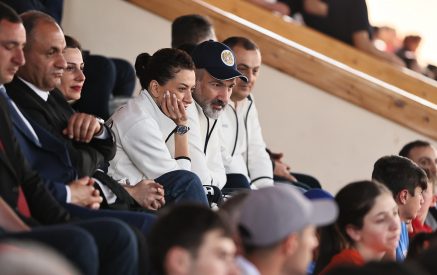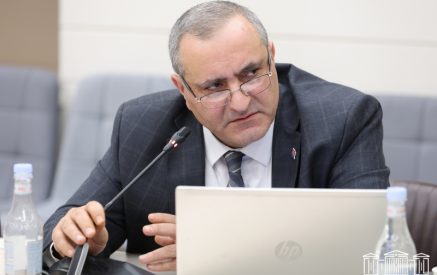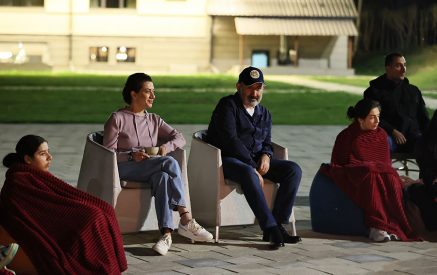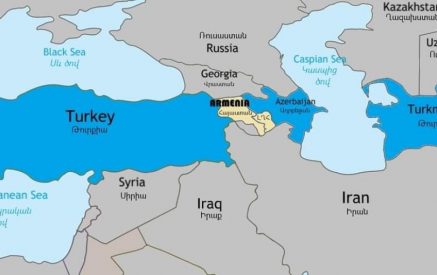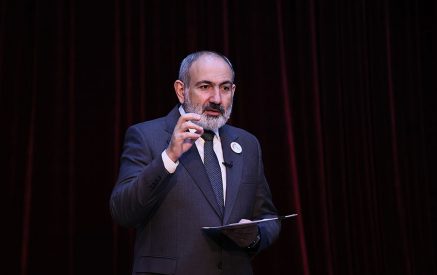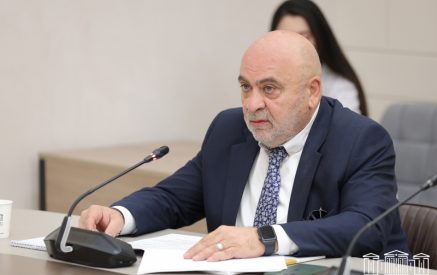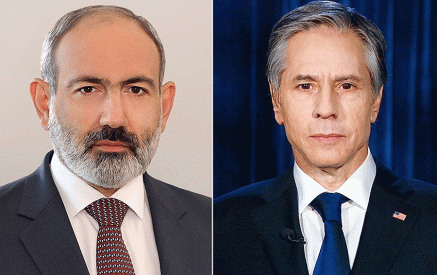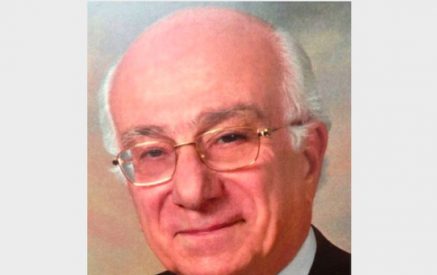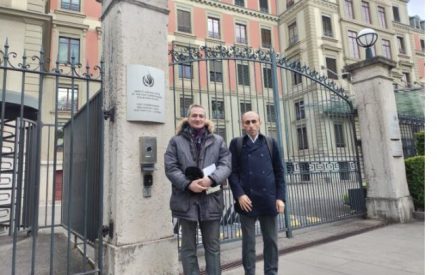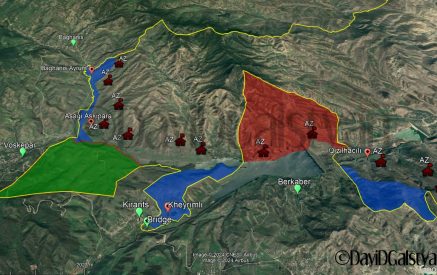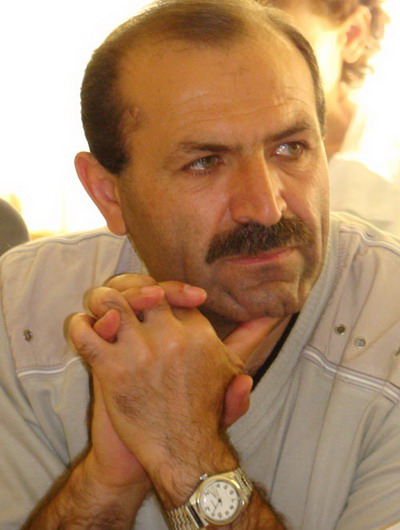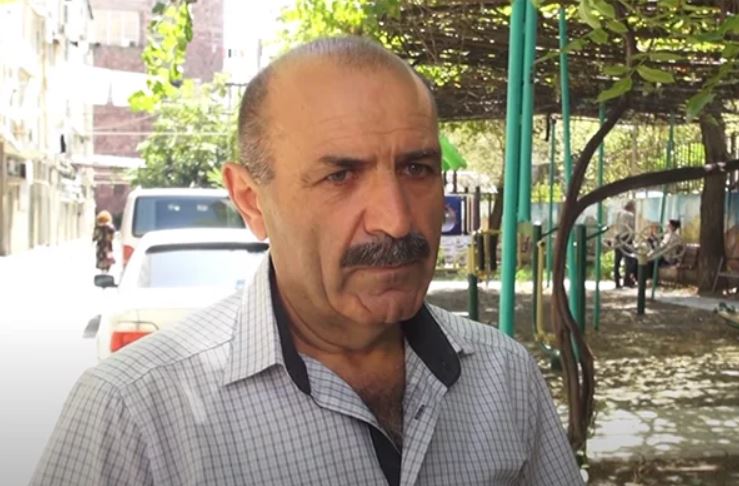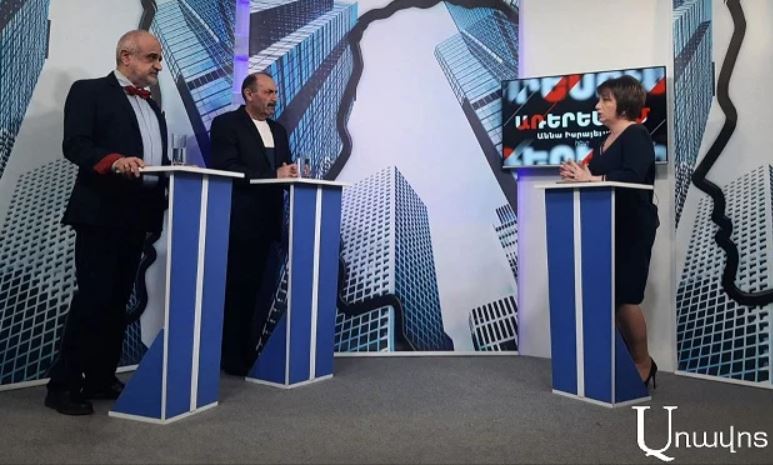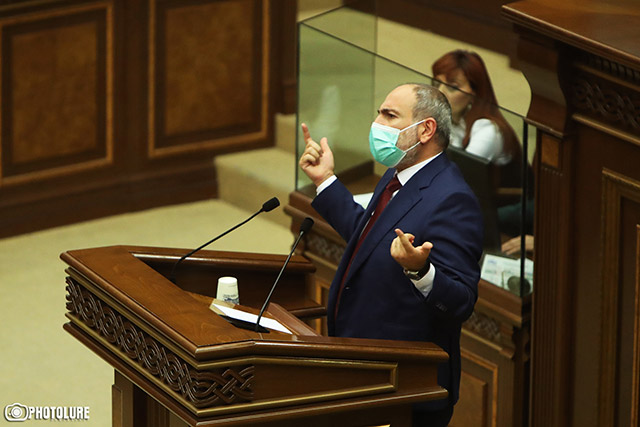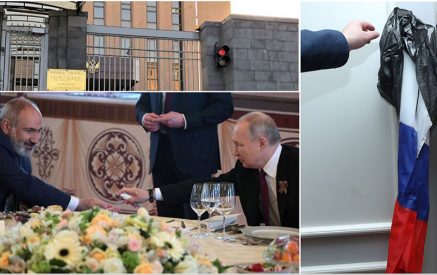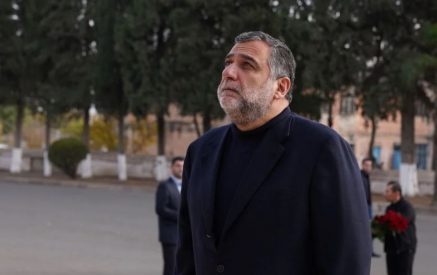Says Chairman of the Center for Rights and Freedom, also human rights activist, Vardan Harutyunyan, in the conversation with “Aravot”
– Mr. Harutyunyan, enough time has elapsed since the publication of your book “Dissident in Soviet Armenia”. What would you say? Were your expectations met?
– Yes, more than six months have elapsed. One thing is clear, there is a wide circle of people in Armenia, who signifies this topic. I am happy that people of different ages and different interests are included in this circle. I am especially happy for the young people. If people aged 40-50 and more are interested in this topic and the book, because it addresses the years of their passed life and in some sense, it can be considered a part of the biography for each of them, then it obviously is a true story for the youth. Young people are much more aware of the medieval period than of Soviet history and are unable to fully understand the traditions of this region. It was interesting to see how the students of the Institute of Ethnology and the Department of Journalism of the State University were attentive about the book and discussing it. The questions raised by the young journalists about the book made me feel happy. It was and is important to listen to the opinions of experts and historians. Some people are satisfied with calling me and expressing their opinions, and some have expressed their opinion publicly. In all cases, there were praising words and the importance of the book was emphasized. When working on the book, my top priority was to ensure impartiality. This fact is more than important for me, especially since I myself am one of the “heroes” of this book. I am also glad that the reader can never see me in the role of the hero separated from others and in artificially colored colors.
Read also
– Are you pleased with the results? Especially, what drawbacks will you mention?
– I am satisfied with the result, but it could be better. In the meantime, I have noticed a lot of drawbacks. The book contains errors in biographical data of people. For example, a person has passed away, but it is mentioned in the book that he is living in this or that city. There are people whose names should be included in the book, but they are not. This is the serious drawback. I just learned about the new names after the publication of the book. Many judge verdicts are missing. There are Articles of the Criminal Code that are stated wrongly, which is the result of my inattentiveness. The book should have the list of names and notes, but it does not have. A lot of things need to be corrected, but it is already a matter for the future, and it is still a question whether I would go back to it or not.
– How much satisfactory do you consider the attitude to these people? What was to be done and was or is not done?
– The true time of laying the foundation of the necessary attitude to these people were the 90s, especially the first half of the 90s. This period was more than favorable. It was a period of encouragement and reassessment of values. It was possible also to open the archives, and to complete the list of people who were convicted for Armenia’s independence, democratization and human rights, and pass a separate law for them, and refer to the criminal cases, and elaborate a law on lustration. It is hard for me to talk on this subject because I am one of these people, but now, I’m speaking more about as a political prisoner in the years of the USSR, but as an author of the book “Dissent in the Soviet Armenia”. Among the former republics of the Soviet Union, political prisoners were from Armenia, Georgia, Ukraine, Russia and the three Baltic republics. Apart from Armenia and Russia, in all the other republics, these people had received a special attitude.
In Ukraine, for example, books and encyclopedias are published about them and their committed deeds, some of them are proclaimed as heroes of Ukraine, streets are named after the people deceased in prisons, and pension is granted. The same is true in the Baltic Republics.
It is strange, but in the post-Soviet Ukraine, in the first half of the 1990s, communist Kravchuk was in power, and his successor Kuchma would not be called a democrat, while in Armenia, completely new and non-Communist forces had come to power, but we neglected the fight for Armenia’s independence and democratization. People convicted and persecuted as a result of this struggle and fought against the Soviet regime were artificially included in the list of tens of thousands of people who fell victim to Stalin repression, by eliminating this subject from their agenda and the necessity to address to these people. Thus, 30 and more years of fight for Armenia’s independence, preservation of national identity and human rights was not only eliminated but also the history of the Soviet Armenia was distorted, because these movements were the elements of this period and significant part of the Soviet history. The true motivations for such an approach remained unclear. Armenia’s independent republic never and did nothing to appreciate these peoples’ merits.
Several unsuccessful attempts to somehow correct the situation were initiated. In 1996, the Speaker of the National Assembly, Babken Ararktsyan, expressed willingness to address the subject and to do something. A meeting was organized with the delegation composed of USSR dissidents, to which, however, nothing followed. During Robert Kocharyan’s first term, a similar meeting was planned and organized, even the date and time of the meeting was specified, but at the last moment, it failed. The idea of appraising the merit of these people was also hinted to Serzh Sargsyan. Such an appraisal is necessary first of all to the state. The state that does not appreciate the people who have fought for its existence cannot be considered complete. This approach shown to the political prisoners of the Soviet years became a rule, and similarly, the available attitude to the war veterans of Artsakh was formed. The former combatants who have participated in the war, carried the entire burden of the war on their shoulders, wounded and disabled in the battlefield, are living in despair and poverty fallen into oblivion.
– Earlier, you spoke about the feedback of the students and experts on the book. What were the feedbacks of the “heroes” of the book?
– In this case, the feedbacks were mostly positive. It is rejoicing when people covered in the book, after reading it call me and express their satisfaction. Some people have posted their opinions on the social networks. I have not heard a negative opinion about the book. One of the former political prisoners promised to write a comprehensive censure, in which he will also mention the drawbacks from his view, but later, he gave up with the idea. I would be only happy if it were written.
There was a case when I had received complaints from the relatives of the or already the late “hero” of the book, but these complaints were related not to the book, but the separate episodes of their biographies presented in the book. Despite the fact that these biographies belong to them, I have not concocted them, and they seem not to have a reason to be offended, but they do. This is unpleasant, but I would falsify if I had tried to edit the biographies of people covered in the book or think at the moment of writing about what this-or-that person would think, and address accordingly to this-or-that episode of the biography. Each person is the master of his biography. No one can say and has said that I have allowed a fraud or concoct in this book. This is important. And the rest is from the sphere of emotions. Let’s say a relative of the deceased political prisoner calls me and complains that according to the biography presented in the book, his hero relative is not perceived as an unbending hero. What can I say? To explain that I have not written an ode but a collection of memories and conclusions based on the documents becomes unnecessary. Another one is upset that a careful reader would guess his relative, about what he would prefer to remain silent. Those who express disappointment can be counted on the fingers of one hand and still some fingers will remain free.
I am sure that many people presented in the book are worthy people and did not have the need for artificial colorings, and erasing or editing this-or-that page of their biography. There are people among those complaining, whom I have and still consider dear to me, but either I had to write this book or not to write at all. I decided to write and I have approached the material not so much as a writer but as a photographer.
“Aravot” daily, 10.06.2015


